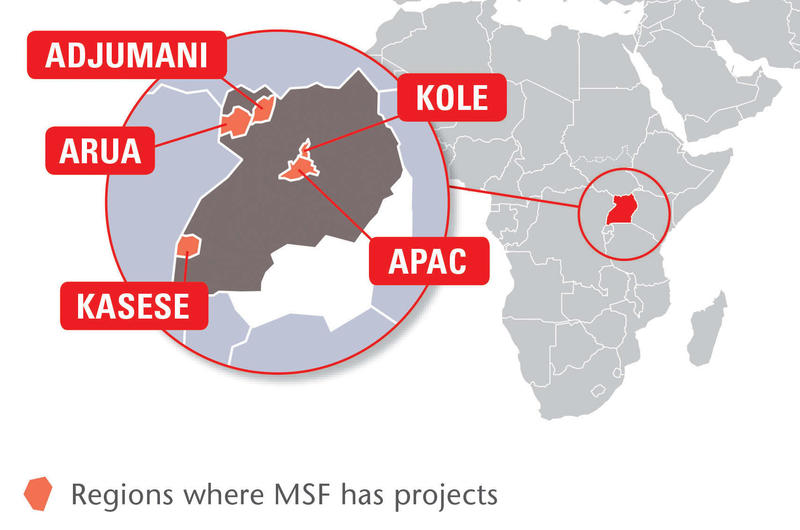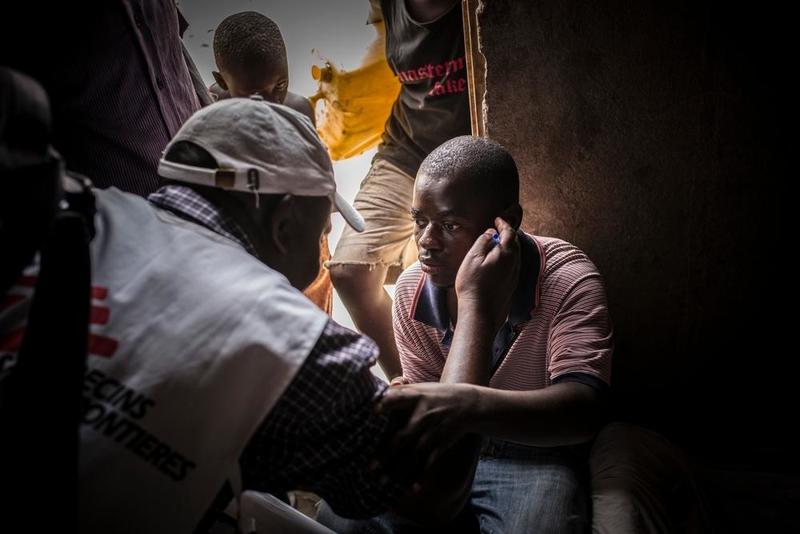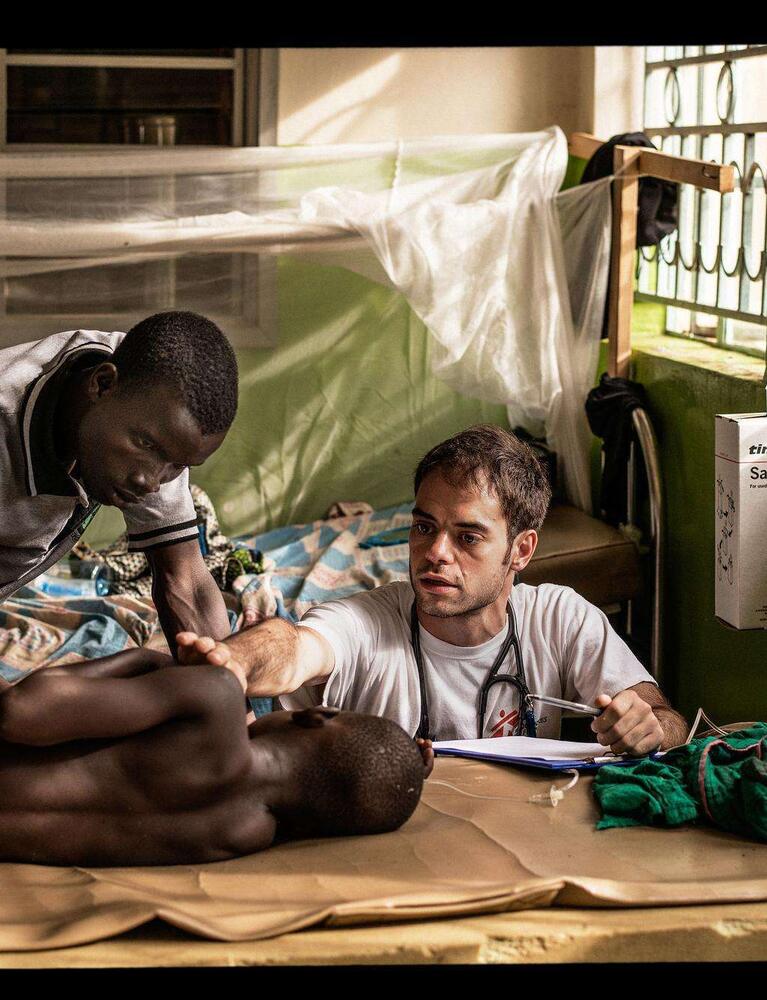Uganda was notorious for its human rights abuses in the days of Idi Amin and Milton Obote’s rule in the 1970s and 1980s.

But today, the landlocked East African country of roughly 37 million people has managed to emerge from a disastrous civil war and economic catastrophe to become relatively peaceful, prosperous and stable.
The country has won praise for its vigorous campaign against HIV/AIDS. This has helped to reduce the prevalence of the virus – which reached 30 percent of the population in the 1990s – to single-digit figures.
Médecins Sans Frontières/Doctors Without Borders (MSF) first worked in the country in 1986.
[[Country-Facts]]
MSF’s work in Uganda: 2015
At the end of 2015, we opened a new project in Kasese district, southwest Uganda.
This project focused on access to healthcare for adolescents and the fishing communities on lakes George and Edward.
Both groups are particularly exposed to HIV and other sexually transmitted diseases. Activities are run in complete integration with the public health system.

HIV care
Since 2013, MSF has supported the HIV laboratory in Arua district, and has introduced devices to measure CD4 and viral load count as part of a UNITAID-funded project.[[Article-CTA]]
In 2015, MSF started offering early infant diagnosis, to test babies born to HIV-positive mothers so that they can start antiretroviral (ARV) treatment as quickly as possible if necessary. MSF is also supporting genotyping tests, which identify resistance to second-line ARVs.
Response to a malaria outbreak
MSF conducted an epidemiological assessment in Kole, Apach and Oyam districts, and at the request of the Ministry of Health, donated more than 81,000 treatments for malaria and supported case management in health centres in two districts and a hospital in Kole.
Teams also ran mobile clinics and referred patients to Lira regional hospital, if required. During the five months, 63,000 patients with malaria were treated in the districts supported by us.
Project handovers
In July, we handed over the outpatient, inpatient and maternity care services we had been providing for South Sudanese refugees in Adjumani district since January 2014 to Medical Teams International.
Between January and July, more than 48,600 consultations were carried out, and 574 patients were admitted to hospital.
Find out more in our 2014 International Activity Report




